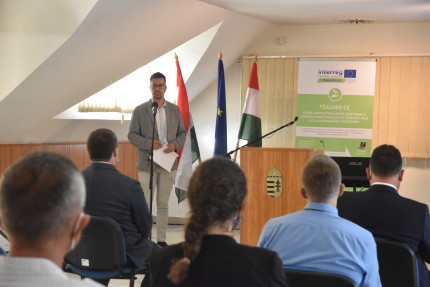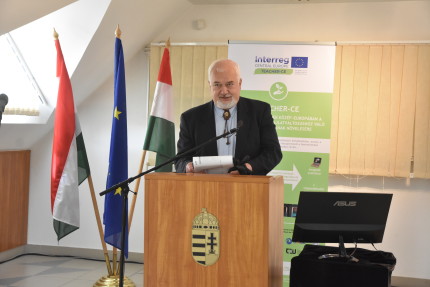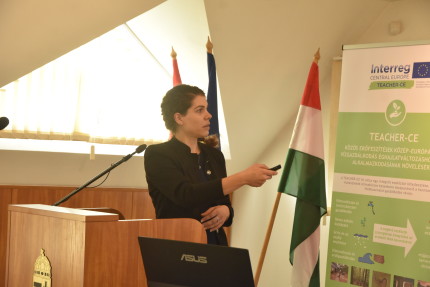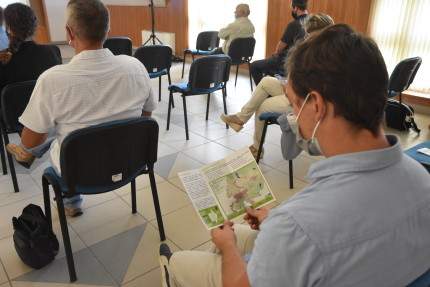Stakeholder Workshop Hungary
The first Hungarian Stakeholder Workshop was held in the conference room of the Branch Office of Middle Tisza District Water Directorate (MTDWD) with 30 participants. The event was divided into two sections: an introductory section and a round table conversation. The event was opened by Mr. Lajos Horváth, the Deputy Technical Director of MTDWD. He gave not only an opening speech, but also shortly described the current situation regarding sustainability within water management sector in our region. The TEACHER-CE project itself was shortly introduced by Ms. Judit Palatinus, the Hungarian project coordinator of TEACHER-CE. Afterwards, Mr. Péter Sólyom presented the TEACHER-CE toolbox and he further explained the 4 main projects (RAINMAN, FramWat, PROLINE-CE, SUSTREE) and their outcomes. He gave a further insight to the audience about how the TEACHER-CE toolbox is planned to be structured and precisely introduced the RAINMAN and FramWat projects in which the MTWDW was a project partner. At the end of the first section, Mr. Gábor Harsányi, the leader of the MTDWD’s expert team briefly presented the Hungarian Pilot Action Nagykunsági river basin and defined the need to a complex sustainable solution within water management sector with examples from our region (e.g.: heavy rain, drought, flood within a month).
The second section was coordinated by Dr. János Fehér, who briefly described the main aim and the goals of the round table discussion to the stakeholders. The stakeholders raised the following main issues during the discussion:
The issue of afforestation is an important topic in the Great Plain of Hungary. It also should be considered as its impact on groundwater can be detrimental to the economy.
- Municipal rainwater must operate separately from wastewater treatment, and as much of the rainwater retention as possible must be recycled, which must begin at the households’ level.
- Reconstruction and modernization of wastewater treatment plants are necessary in order to achieve re-usable water quality, taking into account that a decrease in the amount of surface water dilution can be expected.
- In addition to increasing productivity and crop security, developments must also focus on sustainability. Furthermore, along with irrigation development, food processing should also be provided.
- Support systems should be designed in such a way that in case of waste water treatment plants under development the treated waste water should be directly suitable for irrigation and the energy needed for operation shall be available in a renewable form.

|

|

|

|
